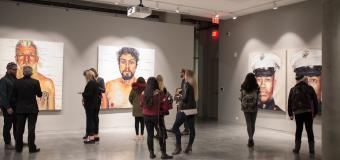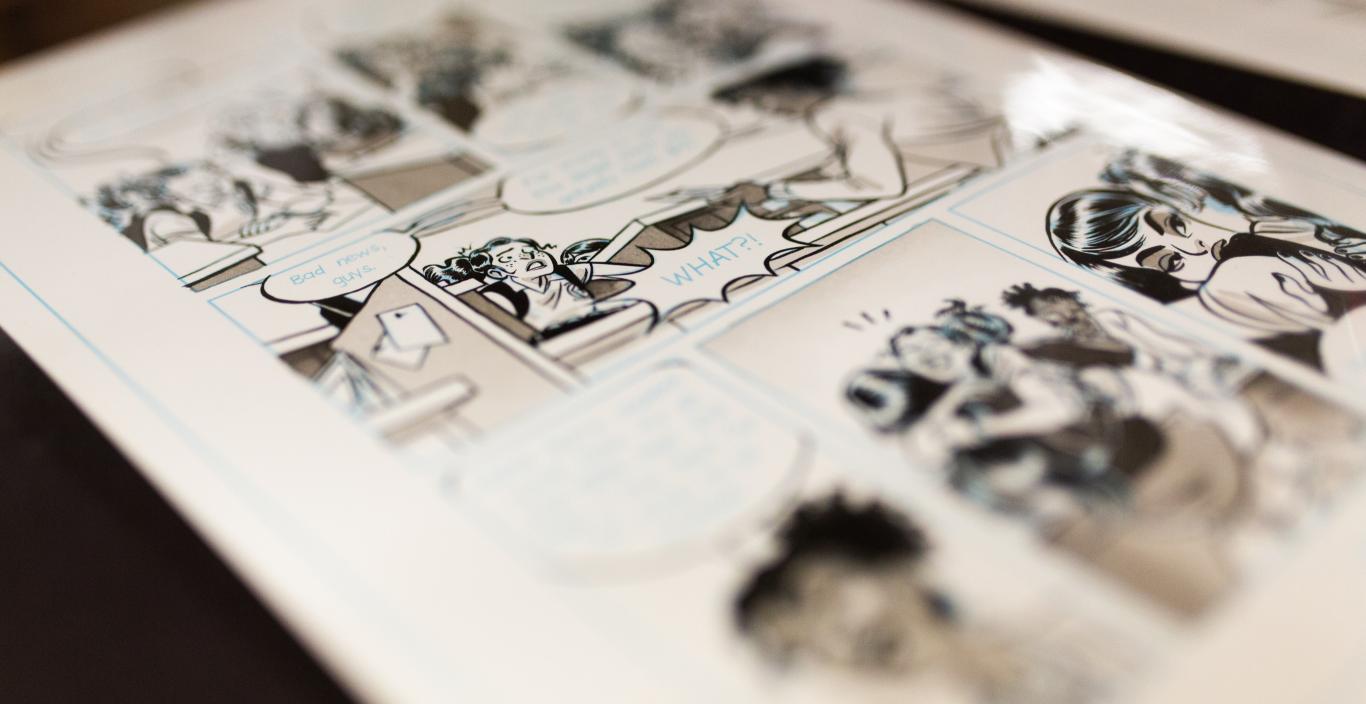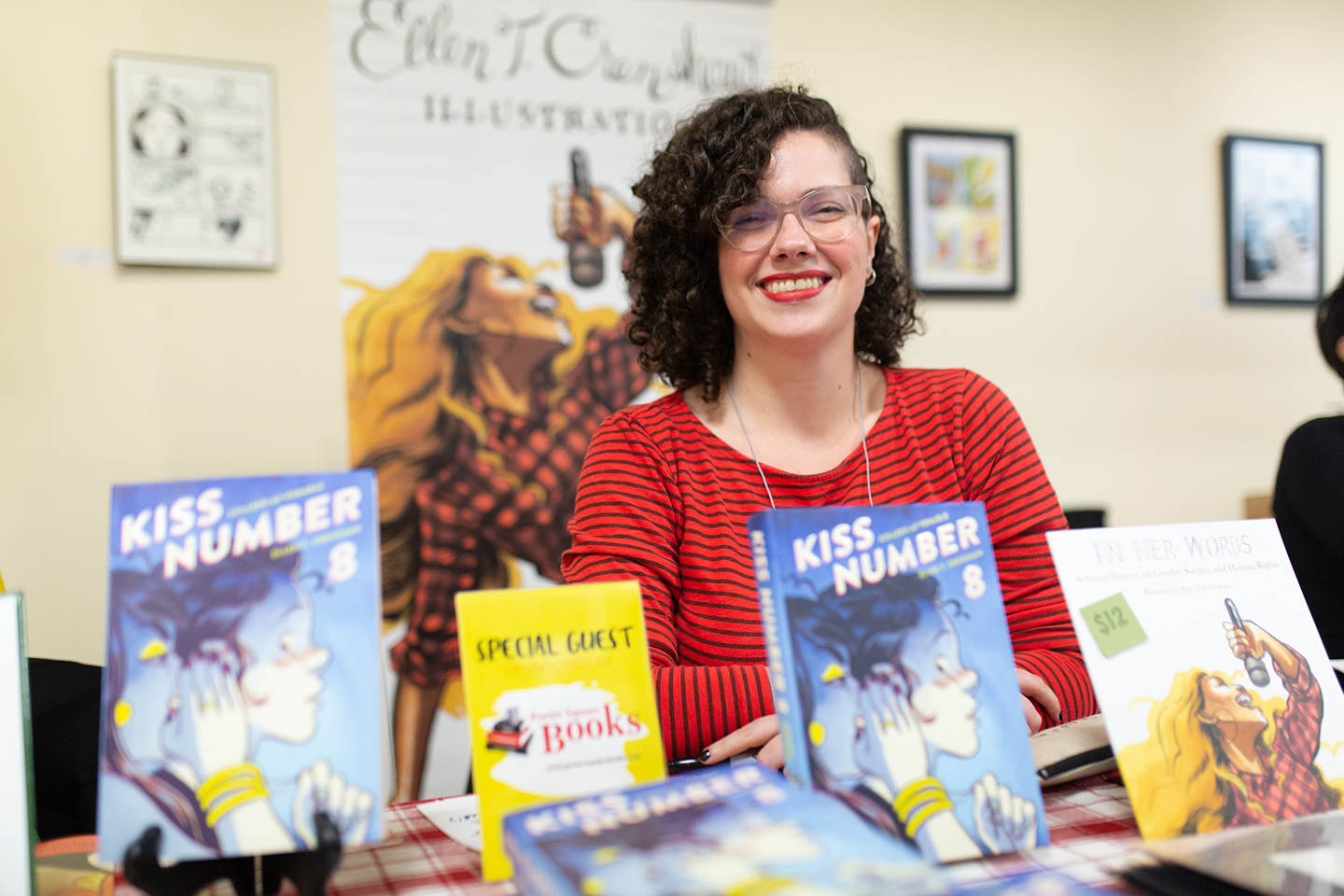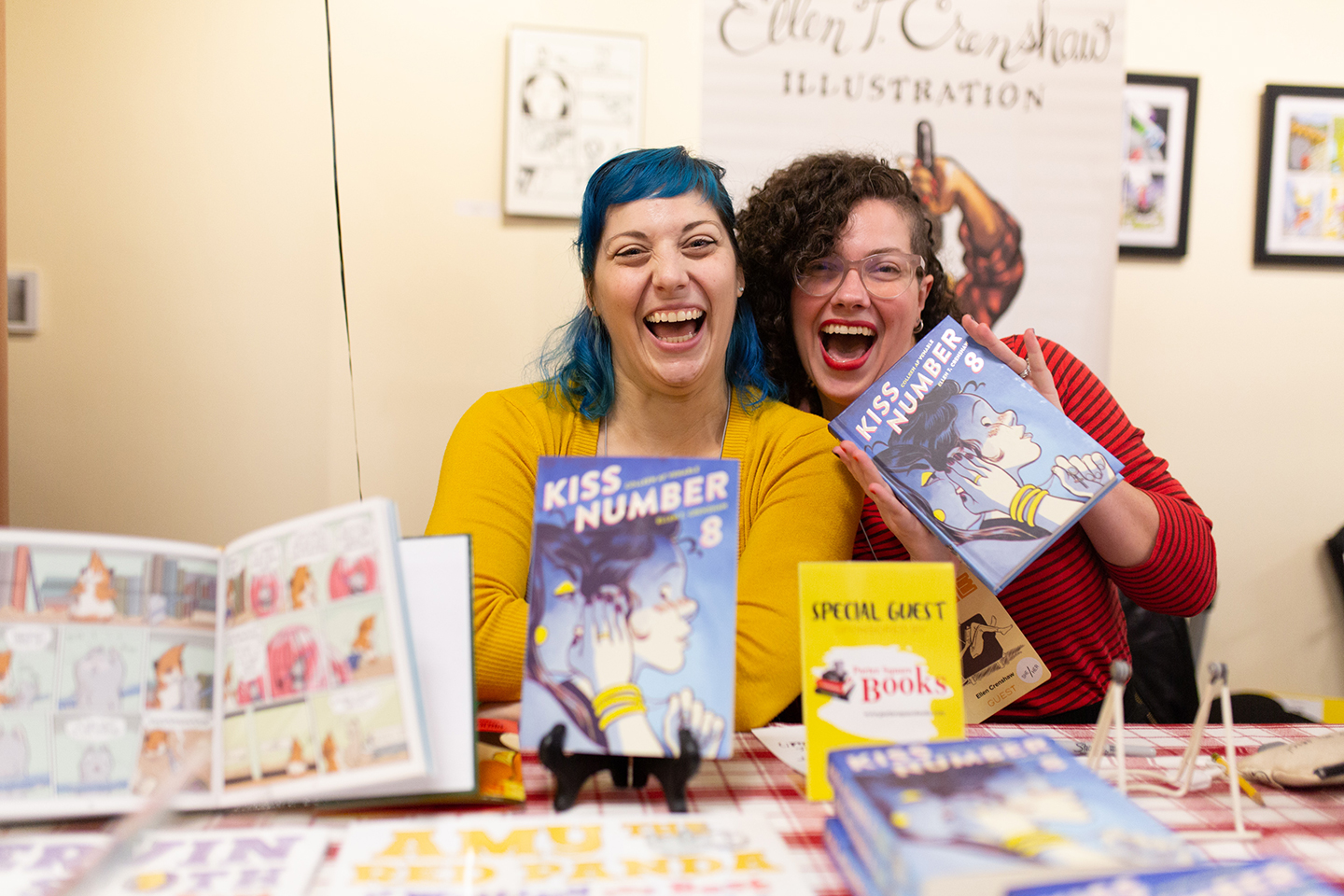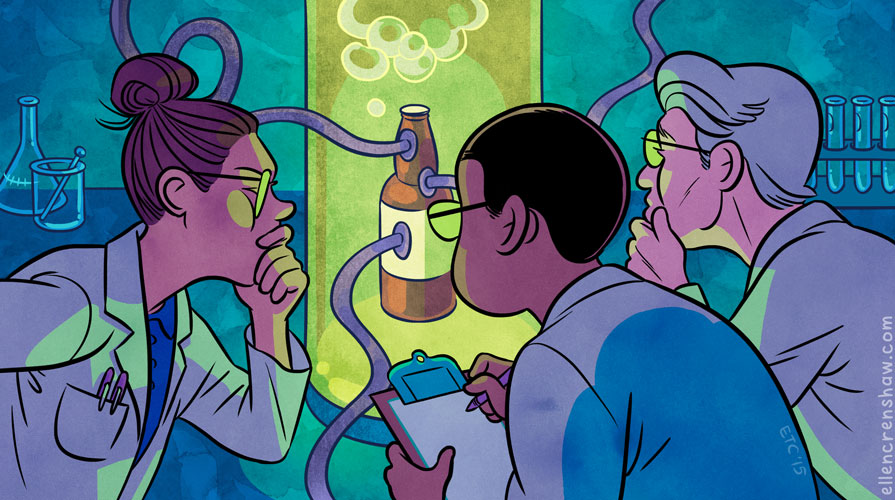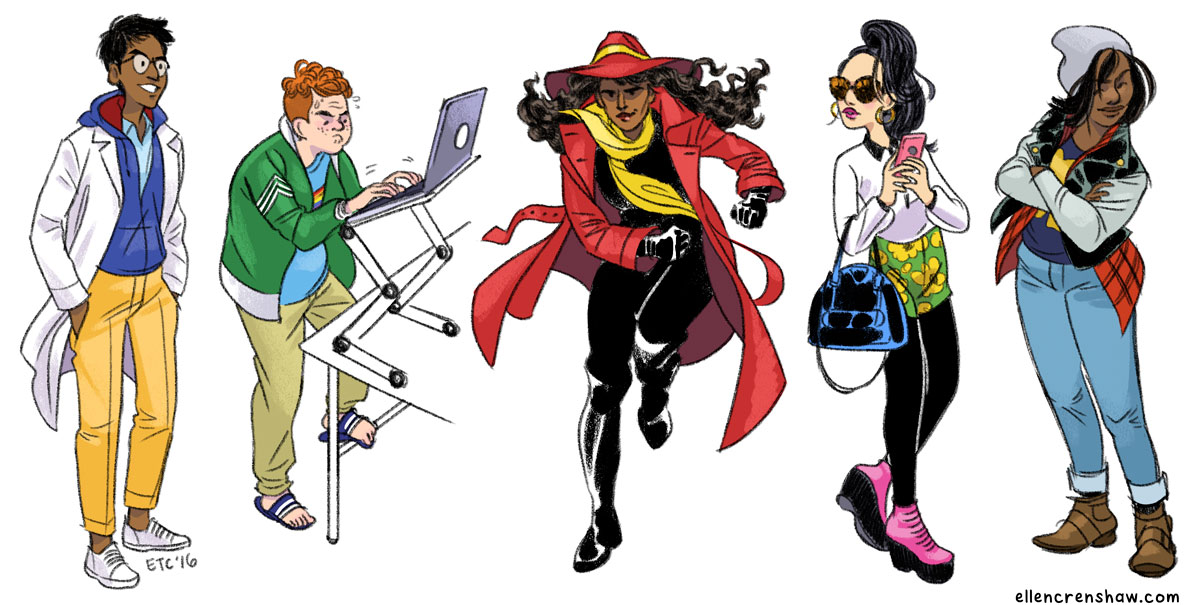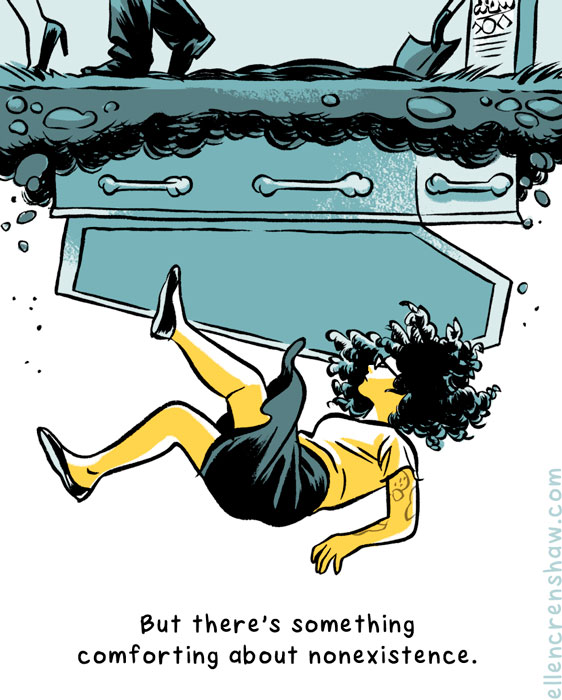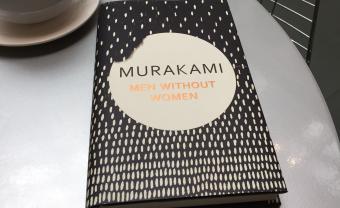Ellen Crenshaw '07 has been hard at work since graduating from Lesley's Illustration BFA program. She has mastered many skills since her undergrad days. Skills such as perfecting the illustrator/author working relationship, making sure she gets paid on time, illustrating US infrastructure, exhibition etiquette, and maintaining supportive and enthusiastic connections, among others. But Ellen names her personal illustration style as something that's remained consistent since college.
After her success with the book Kiss Number 8, Ellen made one of her many expo stops in Cambridge where we caught up with her about work and life as a professional illustrator.
Your latest book with Colleen AF Venable has earned a lot of praise. What was the process of collaboration like with Colleen?
Ellen: Colleen and I live on opposite coasts, so our collaboration was all done remotely. We're friends, but also professionals, so I worked with her the way I would work with any author or client: with lots of communication. I submitted designs and pencils to Colleen and our editor at First Second Books, a handful of pages at a time, and they either responded with revision requests or a thumbs-up! Colleen's script was very clear and descriptive, so honestly, it was an easy collab. The benefit of friendship was that the few times I did need clarification I was able to shoot her a quick text without going through the formal channels.
How do you decide which projects to sign on to? Have you ever worked on projects you didn’t agree with or disliked?
Ellen: While it's true that I'm looking for projects that interest me, I never actually know what that will be until I begin the research or read the script—once I illustrated a piece about US infrastructure (roads, bridges, internet, etc), which is so out of my wheelhouse, but I found it fascinating!
The majority of the time I agree to work on projects based on the feeling I get from the client. Are they professional? Do they treat me with respect? Do they communicate clearly and in a timely manner? Are they forthright with their budget? Do they know what they want? Have we worked together before, did I like it, and did they pay me on time?
I've absolutely worked on projects I didn't like, more when I first started freelancing. One client, in particular, had me working on a mobile game that was awful—a no-fun-at-all, microtransactional, pay-to-win piece of garbage. And the client didn't actually play games themselves, so they had no understanding of what makes a good game. I quit after two weeks.
Do you set out with an intentional style in your work, or does it emerge naturally?
Ellen: Both! Some things come naturally, but a lot of my style is made up of small choices that build on each other and point me in a particular direction.
At what point did you see your personal style come through in your work?
Ellen: I remember a turning point in college. In Editorial Illustration class—taught by Susan LeVan at the time—we had to complete an assignment, start to finish, in a single session. That meant reading an article, doing thumbnails and comps, getting approval from our "client" (Susan), and delivering final art in three hours. There was no time for overthinking, and I made something using techniques that just felt right. It was cartoony, emotional, boldly lined with brush-and-ink, with saturated watercolors. From that day onward I followed those instincts, and my current work can largely be described in the same way.
If you look at your life and career as a book, which chapter would you say you’re in now?
Ellen: I think I'm in Book 2 of an unplanned trilogy. Book 1 had all these great twists and turns and lofty goals, and now that's done and here in Book 2 things are less clear—and maybe a little boring—but hopefully I'm setting up for something great in Book 3.
Is your professional life what you imagined it to be since graduating school?
Ellen: Not even a little bit! The industry doesn't remotely resemble what I was trained for, and that was quite a rude awakening. What saved me were the relationships I had formed—in school, at events and exhibits, at cons—with people who were willing to work with me and give me a chance. I am eternally grateful to those people for those opportunities.
Do you have any advice for students in the illustration program?
Ellen: I think the best advice I can give students is to participate in as much as you can, with sincerity, enthusiasm and kindness. You never know where your next opportunity will come from, or when. Surround yourself with people you genuinely like and admire, encourage them and celebrate their success. These are the people who will be there for you when it's your time to shine.
